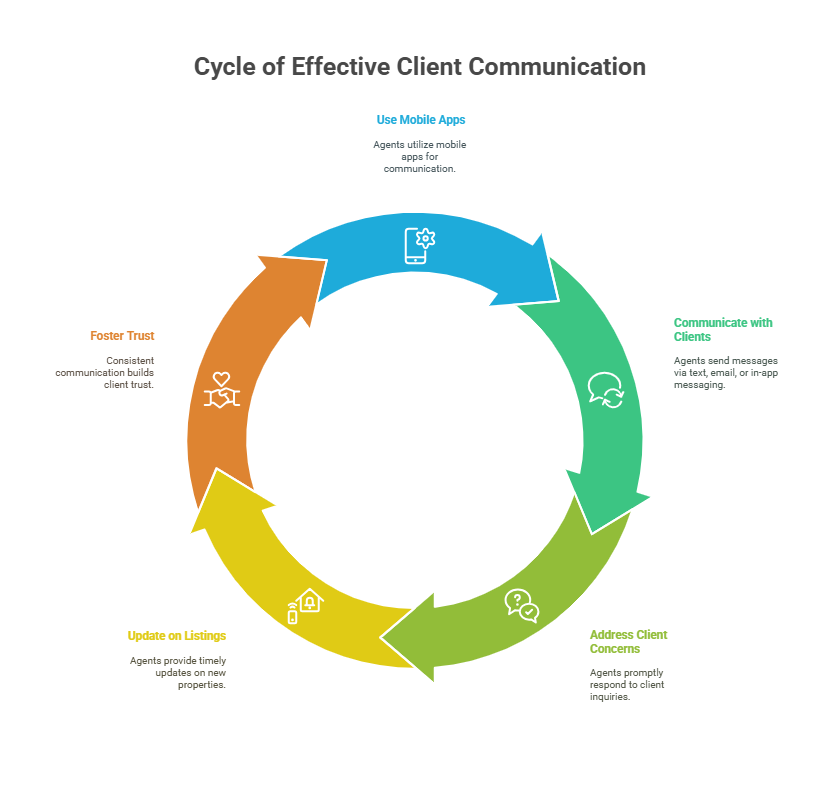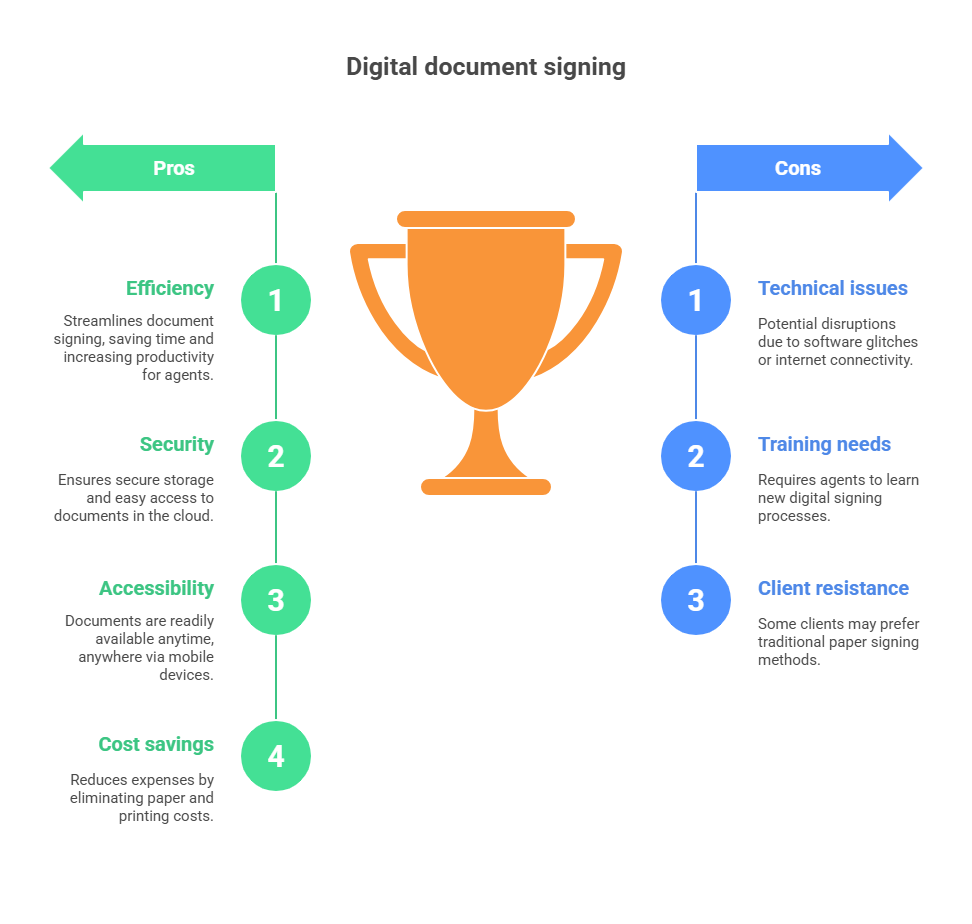Streamlining Your Real Estate Business with the Latest Mobile Technology
.jpg)
In today’s fast-paced world, real estate professionals need tools that can keep up with their demanding schedules and provide seamless, efficient solutions. Mobile technology has become a game-changer in the industry, offering a wide array of applications and tools that enhance the day-to-day operations of real estate agents. From managing client relationships to tracking property listings, mobile technology allows agents to perform tasks on-the-go, providing greater flexibility and productivity. In this article, we will explore how the latest mobile technology can streamline your real estate business and help you stay competitive in an ever-evolving market.
To learn more about how you can further enhance your real estate business, visit the agent-assisted auto-valuation model, a powerful tool designed to help you stay organized, informed, and connected in today’s competitive market.
The Role of Mobile Technology in Real Estate
The integration of mobile technology in real estate has revolutionized the way agents operate. In the past, agents had to rely on desktop computers and paper documents to manage their work, which was time-consuming and often led to errors. Today, mobile devices have replaced the need for bulky paperwork and physical offices. With mobile apps and platforms, agents can manage client communication, track property listings, and even sign contracts from anywhere. This shift to mobile technology not only improves efficiency but also allows agents to spend more time engaging with clients and closing deals.
Mobile Apps for Real Estate Agents
Mobile apps specifically designed for real estate agents offer a host of features that can significantly improve business operations. These apps allow agents to manage contacts, schedule appointments, and communicate with clients in real-time. Furthermore, many apps include features such as CRM (Customer Relationship Management) integration, listing management, and market analysis tools, all of which are essential for an agent’s success. These apps are available on both Android and iOS platforms, providing agents with the flexibility to choose the system that best suits their needs.
Enhancing Client Communication
Effective communication is key to building strong relationships with clients, and mobile technology plays a vital role in making this process seamless. Through mobile apps, agents can easily communicate with clients via text, email, or in-app messaging. Real-time messaging ensures that agents can quickly address any client concerns, update them on new listings, or answer questions about properties. This constant communication helps foster trust and ensures that clients feel heard and valued throughout the buying or selling process.

Managing Listings on the Go
For real estate agents, managing listings is a crucial part of the business. Mobile technology allows agents to easily update listings, upload property photos, and add new details directly from their smartphones. This eliminates the need for agents to be tied to a desktop computer or office, providing them with the freedom to update listings wherever they are. Additionally, some apps allow agents to synchronize their listings across multiple platforms, ensuring that their properties are seen by the largest possible audience.
Virtual Tours and Open Houses
Virtual tours and open houses have become increasingly popular, particularly in today’s remote and socially distanced world. Mobile technology makes it easier for agents to host virtual open houses and offer 3D tours of properties. By using a mobile app or camera, agents can give prospective buyers a comprehensive view of the property without requiring them to visit in person. This feature is particularly useful for out-of-town buyers or clients who prefer to view properties from the comfort of their own homes.

Mobile Technology for Property Valuation
Valuing properties accurately and quickly is essential in the real estate business, and mobile technology can help streamline this process. Many apps now include automated valuation models (AVMs) that provide real-time property estimates based on comparable sales, market trends, and other data. This technology gives agents a powerful tool for advising clients on pricing, whether they are buying, selling, or renting. By providing quick, data-driven property valuations, mobile technology helps agents make informed decisions and improve their overall efficiency.
Scheduling and Calendar Management
Managing appointments and showings is another area where mobile technology can significantly improve an agent’s workflow. Many real estate apps include integrated calendar and scheduling features, allowing agents to set reminders, book showings, and coordinate meetings with clients. These scheduling tools can sync with other calendars, such as Google Calendar or Outlook, ensuring that all appointments are managed in one place. By streamlining the scheduling process, mobile apps help agents stay organized and avoid double-booking or missed appointments.
Document Signing and Storage
Gone are the days of printing, signing, and scanning paper contracts. With mobile technology, agents can now electronically sign and store documents in the cloud, making the entire process more efficient. Many real estate apps have integrated e-signature capabilities, allowing agents and clients to sign contracts and agreements digitally, reducing the need for paper documents. This not only saves time but also ensures that all documents are securely stored and easily accessible when needed.

Marketing and Lead Generation
Mobile technology also plays a key role in marketing and lead generation for real estate agents. With social media apps and advertising tools, agents can easily promote listings and services to a wide audience. Many mobile apps integrate with popular platforms like Facebook, Instagram, and LinkedIn, making it easy for agents to reach potential clients. Additionally, some apps include lead generation features, helping agents identify and nurture new leads directly from their mobile devices.
The Future of Mobile Technology in Real Estate
As mobile technology continues to advance, the future of real estate is likely to become even more reliant on mobile solutions. Innovations such as artificial intelligence, augmented reality, and machine learning are already being integrated into real estate apps, providing agents with new ways to connect with clients and manage their business. In the future, agents can expect even more advanced features that will further streamline processes and enhance the client experience. Staying up-to-date with these technological advancements will be key to maintaining a competitive edge in the real estate industry.
Conclusion
The latest mobile technology offers real estate agents a powerful set of tools to streamline their business operations, improve client communication, and boost efficiency. From managing listings and scheduling appointments to conducting virtual tours and signing documents, mobile apps have transformed the way agents work. By embracing these technologies, real estate professionals can enhance their productivity and provide exceptional service to their clients.






.jpg)


.jpg)